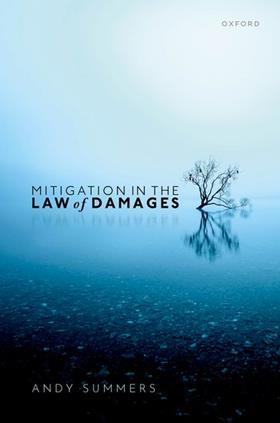Mitigation in the Law of Damages
Andy Summers
£100, Oxford University Press
★★★★✩
This is a highly original piece of analytical research on a subject which has hitherto lurked in the shadows. In bringing this area of law centre-stage, perhaps Andy Summers has done for the doctrine of mitigation what Tom Stoppard did for Rosencrantz and Guildenstern in extracting them from Hamlet and identifying for them an important role of their own.
Mitigation affects all types of civil claim in English law, whether based in contract, tort, statutory duty or otherwise, but has hitherto been considered and applied in a somewhat inconsistent fashion by courts and academics. In considering principles of ‘avoidable loss’ and ‘avoided loss’, the wood was never quite cleared from the trees in order to produce clarity of vision on the subject. Indeed, Dr Summers’ avowed objective ‘is to reveal the trunk and branches of the law of mitigation’.

The book is divided into three main parts: ‘Orthodoxy’, ‘Explanation’, and ‘Restatement’. Cases such as Schering Agrochemicals v Resibel on ‘avoidable loss’ and Hussey v Eels on ‘avoided loss’ are considered. The author then goes on to explain mitigation in terms of being part of the doctrine of causation (taking into account Hart and Honoré’s seminal work on Causation in the Law). Finally, Summers restates the doctrine of mitigation by applying new concepts, such as ‘the replication rule’ and the ‘exceptionality rule’, which in his view make more sense of what mitigation is all about.
The work includes analysis of doctrines which appear to relate to or overlap with mitigation but are in some cases quite different. These doctrines include ‘intervening acts by the claimant’, ‘betterment’, ‘remoteness’ and ‘contributory negligence’.
Summers draws on McGregor on Damages – the leading textbook on its subject – as source material. But with Summers’ focus specifically on mitigation, this adds a new and strong dimension.
The book is logically argued and each of the 12 chapters sets out its objectives in a way that makes sense for the reader, whether academic or practitioner. The work has comprehensive contents pages, footnotes, table of cases and index.
This is a monograph that will stand the test of time as an insight into an overlooked area of law.
David Glass is a consultant solicitor at Excello Law































No comments yet